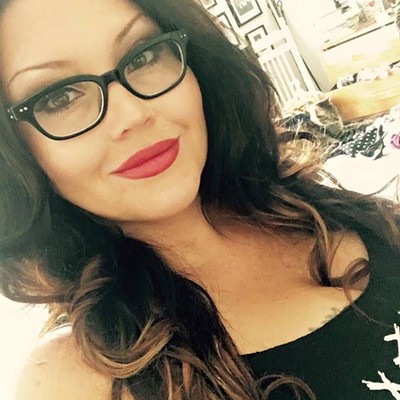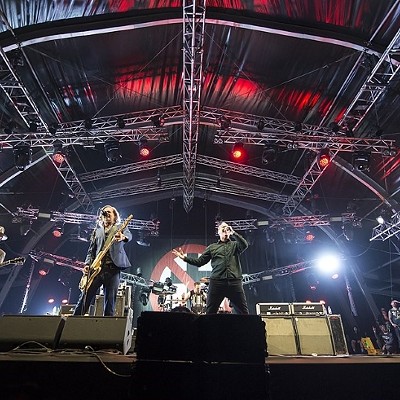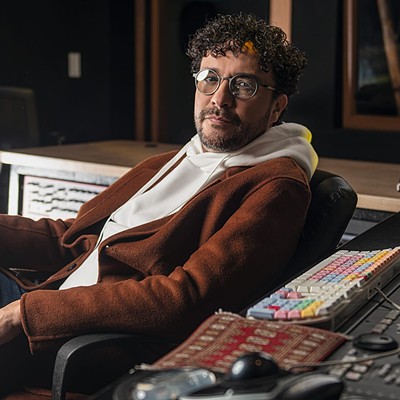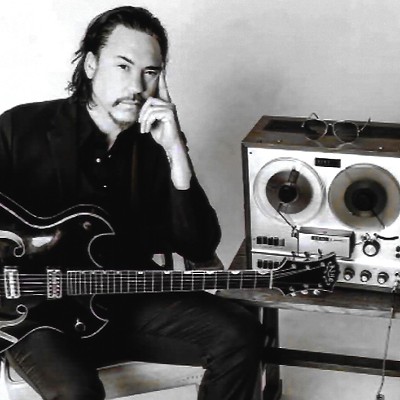At some point, I remember despising my parent’s musical choices. Really despising them. Like, with the kind of arm-fold, eye-roll, loathing attitude that crops up in most omniscient teenagers. To hear the first few bars of a classic rock song from my mother’s kitchen radio sent me heading to my room, slamming the door, flopping on my bed and lamenting my lot: I can’t wait until I’m old enough to move out.
The woeful existence of the intolerant American teenager.
Although I certainly wasn’t alone in this sentiment either. Most teens despise their parents’ music selections. Yet there seems to come a point in every young person’s life when the oppressive music of his or her parents’ era suddenly becomes an identifying characteristic of personality and taste. A change in attitude and acceptance that apparently stems from maturity. The generation gap is easily (and subjectively) defined by “good” and “bad” music.
What is it about youth that makes us all so grossly unaware of good music? Even repelled by it? The torture and trauma of The Lawrence Welk Show is a scar I still carry. A pain so deep and tender, it runs second only to memories of Hee Haw. As an ’80s kid, I could sit through Soul Train, Puttin’ On The Hits, Star Search and literally anything on MTV only because my parents couldn’t.
It wasn’t always that way.
One of my earliest memories is of sitting atop my mother’s shoulders at a Willie Nelson concert. I remember the swarthy theater, the sole spotlight illuminating his iconic red braids and, after everything he did or said, the audience erupting in roaring approval. When he played “My Heroes Have Always Been Cowboys,” hundreds of lighters glowed in the darkness, like the sway of an ocean current at night, carrying wave after wave of stars and the quiet hum of dozens of voices joining in the chorus—including my own.
My mother gave me music; for that I will always be grateful. She loved outlaw country, Southern rock and metal. I could give an exposition and recite the lyrics to Black Sabbath, Queen and Deep Purple long before I could do math or write. I found myself at five years old picking out 8-tracks based on the band, not the color of the cassette, because I knew the music…and then something happened.
In my middle-school years, like most kids in the South, my weekends revolved around Friday night football games. My best friend’s dad would dutifully drive us to the out-of-town games as a chaperone. We made long trips through the rolling hills of the countryside, with hours of farm views that stretched into the horizon and brilliant fall sunsets that cast prisms of warm color across our faces.
Were we grateful? Absolutely not.
That dreaded drive was a source of agony for us both. I remember actively and profusely suffering under the torment of her father’s radio programming choices. Doo-wop, oldies and chart toppers from yesteryear flooded the speakers behind our heads. And God help us when he would sing the chorus.
I was embarrassed for him, embarrassed for myself. After the first few songs where we riddled his off-key performance with nervous middle-school-girl laughter, he would audaciously sing louder. Grossly aware of the embarrassing flaws that grown-ups so unashamedly expose, I cringed in every adult’s presence because they were so uncool. Come on, sing along, everybody likes Elvis!
There’s an almost unbearable weight of self-consciousness in adolescence, the kind of shame that makes every kid cower at his or her parents’ show of humanity and all its warts. We listened to him belt out tunes, mix up lyrics and sing through his nose. "You kids just don’t know good music." He was right, we didn’t.
We really didn’t like, totally, even, you know, get it.
But could we have? By age 11, I needed a musician with synthesizer, androgyny and copious amounts of eyeshadow in order to appreciate them. What my mother called “roller rink music.” I worshipped Duran Duran, Depeche Mode, New Order and Blondie. And their music was for me something akin to a religious experience; I felt like they understood me. My mother was kind enough to let me explore music on my own without being overprotective or, worse, censoring.
In college, far from home and missing my family, I found myself playing my mother’s music. Often. Stuck in a sterile, strange dorm room with unfamiliar roommates, I needed to be reminded of who I was. At first as nostalgia, then as a way of connecting to my mother in her absence and finally as an identity marker, I embraced the music I had been raised on.
Now, the pluck of an upright bass, the twang of a steel guitar and the deep, sludgy distortion of doom metal are sounds that seem to speak to me. They communicate what I feel and know about myself and reaffirm my identity. Synthpop and all of its hollow beats and simplistic rhythms feel as remote and alien as seventh grade is to me now. That doesn’t mean that New Wave is bad; it just means I grew up.
Music is a form of marked time and sounds, yet also has a way of marking time in our lives. And unlike other forms of art, has a way of transporting us to the past while holding us firmly in the present. It’s only as we get older that we can appreciate the music our parents gave us because we finally meet them on an adult level of understanding. Our ear for judging acoustics apparently finds its impetus within the foundation of our personalities. Music is not only culture, it's community.
For me, those long car rides with my mother in our ’72 Gran Torino through the lonesome Texas highways that were once so uninspiring became the journey that I most want to take now. Windows down, wind in my hair, her hands drumming the steering wheel and my child-like voice bellowing out the lyrics, it’s artistic currency at its most precious value — shared memories.
Music, captured in its most beautiful and poetic form, is a gift. And for that, thank you, Mom.
Support Us
Houston's independent source of
local news and culture
account
- Welcome,
Insider - Login
- My Account
- My Newsletters
- Contribute
- Contact Us
- Sign out
[
{
"name": "Related Stories / Support Us Combo",
"component": "11591218",
"insertPoint": "4",
"requiredCountToDisplay": "4"
},{
"name": "Air - Billboard - Inline Content",
"component": "11591214",
"insertPoint": "2/3",
"requiredCountToDisplay": "7"
},{
"name": "R1 - Beta - Mobile Only",
"component": "12287027",
"insertPoint": "8",
"requiredCountToDisplay": "8"
},{
"name": "Air - MediumRectangle - Inline Content - Mobile Display Size 2",
"component": "11591215",
"insertPoint": "12",
"requiredCountToDisplay": "12"
},{
"name": "Air - MediumRectangle - Inline Content - Mobile Display Size 2",
"component": "11591215",
"insertPoint": "4th",
"startingPoint": "16",
"requiredCountToDisplay": "12"
}
,{
"name": "RevContent - In Article",
"component": "12527128",
"insertPoint": "3/5",
"requiredCountToDisplay": "5"
}
]
KEEP THE HOUSTON PRESS FREE...
Since we started the Houston Press, it has been defined as the free, independent voice of Houston, and we'd like to keep it that way. With local media under siege, it's more important than ever for us to rally support behind funding our local journalism. You can help by participating in our "I Support" program, allowing us to keep offering readers access to our incisive coverage of local news, food and culture with no paywalls.
Trending Music
- Country Rock Thrives with Gene Clark and Flying Burrito Brothers for Record Store Day
- Bruce Robison Is The Eternal Song Hunter
- Top 10 Butt-Rock Bands of All Time
-
Sponsored Content From: [%sponsoredBy%]
[%title%]

Don't Miss Out
SIGN UP for the latest
Music
news, free stuff and more!
Become a member to support the independent voice of Houston
and help keep the future of the Houston Press FREE
Use of this website constitutes acceptance of our
terms of use,
our cookies policy, and our
privacy policy
The Houston Press may earn a portion of sales from products & services purchased through links on our site from our
affiliate partners.
©2024
Houston Press, LP. All rights reserved.





